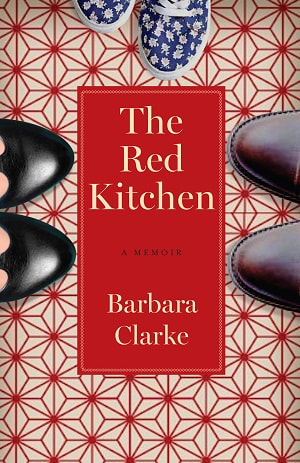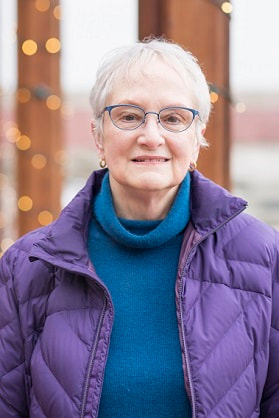Play & Book Excerpts
|
|
The Red Kitchen:
A Memoir
(She Writes Press)
© 2020 Barbara Clarke
Some weeks later I woke up with these thoughts: I’m one parent shy of being an orphan and how is Mom doing. I thought about her often and surprised myself by admitting that I missed her. On an impulse that felt more like a cosmic push than a rational act, I packed my beach gear in the trunk of my car and drove to my mother’s apartment. It was Monday of the Memorial Day weekend, and I hoped she wasn’t off with friends.
I noticed that my hand trembled when I knocked on her door. Our faces mirrored surprise as she opened it and found me standing there. “Hi. If you’re not doing anything, would you like to drive out to the beach with me? I don’t want to plow through past history, but I’d like to have a mother in my life and you’re the only one I have.” I tried to smile, but could feel my eyes filling with tears at the word mother.
“Are you serious? Are you sure?” My mother’s voice was soft and hesitant. “I would like that,” she finally said, her eyes wet too. “What a nice surprise. Let me change into beach clothes and grab my jacket.”
It wasn’t the most relaxing time at the beach I’d ever spent and probably the same for her, but we got through it without a hitch. The only mention made of the two years was when Mom turned to me and said, “I missed you.”
“I missed you too.” When I reached over and squeezed her hand, it felt warm and responsive and completely different from squeezing my father’s cold hand when I left his bedside. Maybe we both knew there was a lot riding on this first attempt at reconciliation. Maybe Bud had told her not to blow it if I ever showed up again.
Mom told me how she had found a nicer, second-floor apartment with a view of the old seminary buildings across the valley and how she would be able to walk to Safeway. We talked about what hanging baskets might work on a sunny deck.
We stayed on a safe path and carefully avoided stepping on any family landmines that could blow the whole afternoon apart. After some thumping around, my heart found a steadier rhythm. Later came a lighter pulse of optimism for my taking the first step in our unique version of a reconciliation. All I wanted out of the visit was to begin to heal. And maybe Mom would too.
By four o’clock we had run out of snacks and laughed at our food dilemma since all of the places where we would have stopped for dinner were closed for the holiday.
“We’re going to starve to death,” I said as we wended our way back over the Marin headlands toward her apartment. “Take a look in my glove box. There might be some old crackers in there.”
“Eureka!” Mom said and carefully opened the little saltines package. We split the two crackers and stopped at a Taco Bell that didn’t care all that much about honoring the dead, for which we were grateful, ate mediocre burritos, and made plans to be together soon. Only the moon was as full as we were.
I noticed that my hand trembled when I knocked on her door. Our faces mirrored surprise as she opened it and found me standing there. “Hi. If you’re not doing anything, would you like to drive out to the beach with me? I don’t want to plow through past history, but I’d like to have a mother in my life and you’re the only one I have.” I tried to smile, but could feel my eyes filling with tears at the word mother.
“Are you serious? Are you sure?” My mother’s voice was soft and hesitant. “I would like that,” she finally said, her eyes wet too. “What a nice surprise. Let me change into beach clothes and grab my jacket.”
It wasn’t the most relaxing time at the beach I’d ever spent and probably the same for her, but we got through it without a hitch. The only mention made of the two years was when Mom turned to me and said, “I missed you.”
“I missed you too.” When I reached over and squeezed her hand, it felt warm and responsive and completely different from squeezing my father’s cold hand when I left his bedside. Maybe we both knew there was a lot riding on this first attempt at reconciliation. Maybe Bud had told her not to blow it if I ever showed up again.
Mom told me how she had found a nicer, second-floor apartment with a view of the old seminary buildings across the valley and how she would be able to walk to Safeway. We talked about what hanging baskets might work on a sunny deck.
We stayed on a safe path and carefully avoided stepping on any family landmines that could blow the whole afternoon apart. After some thumping around, my heart found a steadier rhythm. Later came a lighter pulse of optimism for my taking the first step in our unique version of a reconciliation. All I wanted out of the visit was to begin to heal. And maybe Mom would too.
By four o’clock we had run out of snacks and laughed at our food dilemma since all of the places where we would have stopped for dinner were closed for the holiday.
“We’re going to starve to death,” I said as we wended our way back over the Marin headlands toward her apartment. “Take a look in my glove box. There might be some old crackers in there.”
“Eureka!” Mom said and carefully opened the little saltines package. We split the two crackers and stopped at a Taco Bell that didn’t care all that much about honoring the dead, for which we were grateful, ate mediocre burritos, and made plans to be together soon. Only the moon was as full as we were.
|
In the past, Barbara Clarke has written extensively for corporate clients, trade magazines, worked under a Robert Wood Johnson Foundation grant, nonprofit organizations as a grant writer, and for local and alternative newspapers on a variety of topics. In 2009 she published an indie memoir, “Getting to Home: Sojourn in a Perfect House,” about the process of building a house as a single woman. Other publications followed. Her memoir The Red Kitchen is about two women – the author and her mother – who ultimately, and in very different ways, come of age, find the loving parts of their early relationship, and start living their best lives. Barbara has been a member of several literary organizations. She lives in Bellingham, WA. Follow Barbara on:
|




